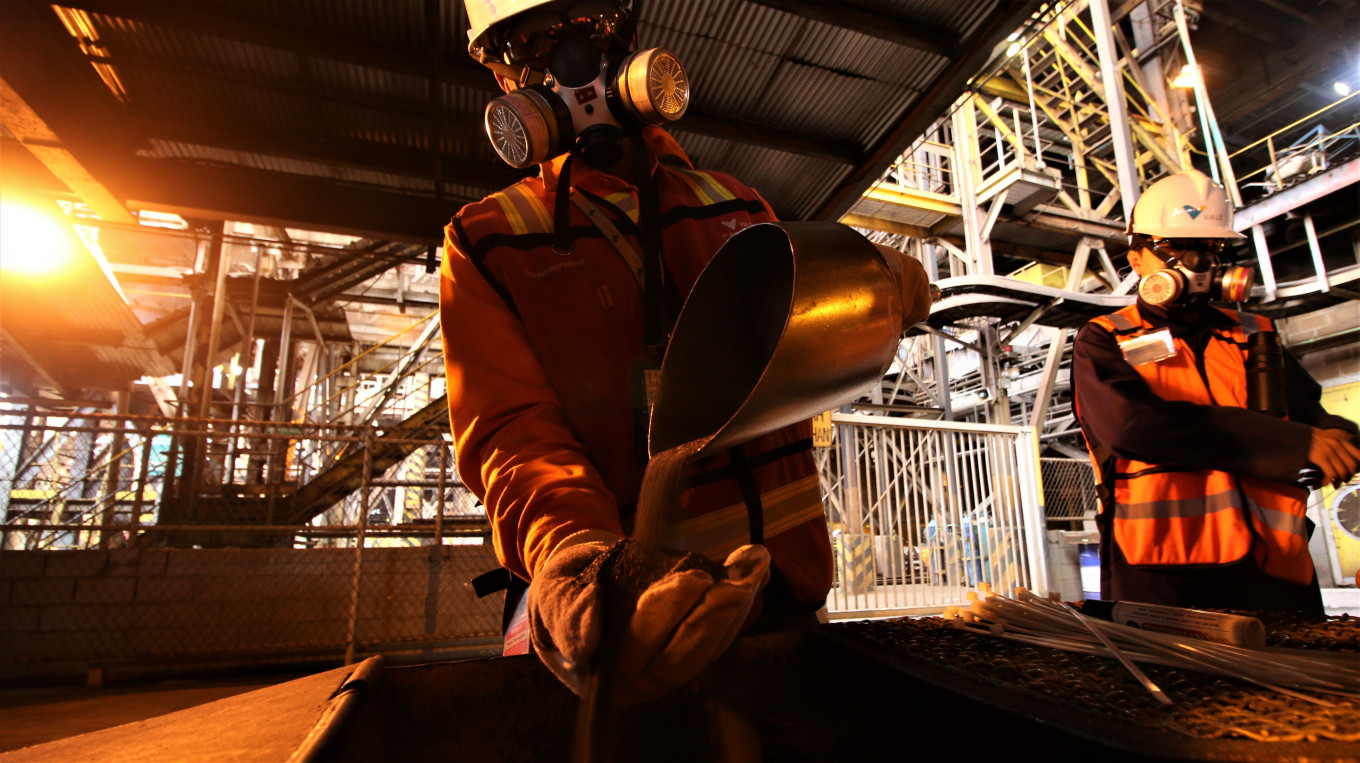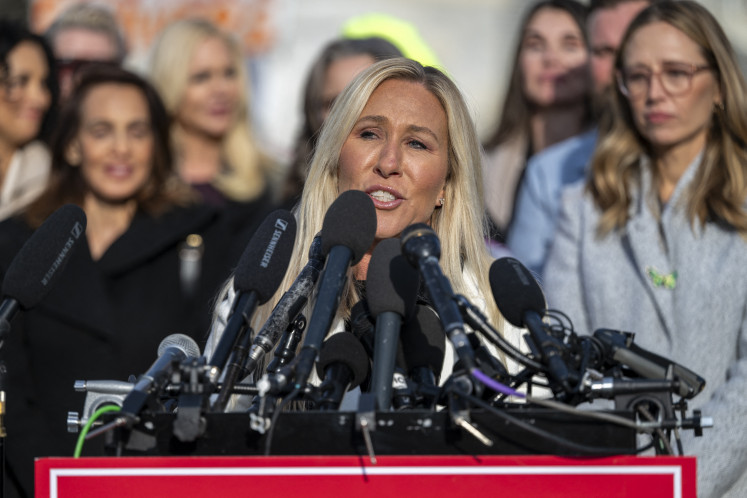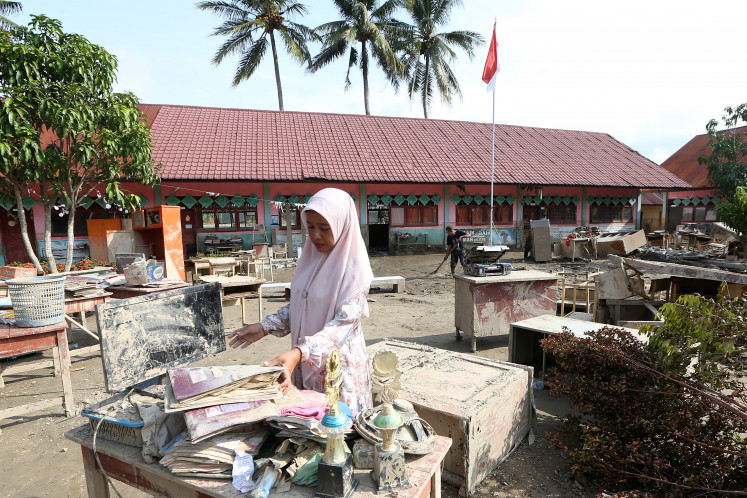Popular Reads
Top Results
Can't find what you're looking for?
View all search resultsPopular Reads
Top Results
Can't find what you're looking for?
View all search resultsIPOs crown downstream policy
The government aspires to be a crucial hub in global EV supply chains, with domestic industries covering every aspect from mineral extraction to battery recycling
Change text size
Gift Premium Articles
to Anyone
I
nitial public offerings (IPOs) by two nickel companies on the Indonesia Stock Exchange show unmistakably that the government's downstream industry push has come a long way.
Both Harita Group’s PT Trimegah Bangun Persada as well as Merdeka Copper Gold subsidiary PT Merdeka Copper Gold are engaged in the nickel-processing business, and their listings planned for this month will contribute significantly to the overall IPO volume on Indonesia’s bourse this year.
The fact that the two companies aim to raise a combined total of more than US$1.2 billion from the corporate actions suggests that investors are now as enthusiastic about Indonesia’s downstream plans as the government itself.
That has not always been the case. Quite the contrary in fact.
When a 2012 ministerial decree based on the 2009 Mining Law turned up the heat by banning shipments of unprocessed mineral ores within months, unless exporters submitted concrete plans to refine their product inside the country, mining firms were up in arms and pursued legal action.
Some submitted formal proposals to build smelters but showed little resolve to get going, hoping perhaps that the issue would go away if ignored.
It did not. Despite numerous concessions and serious delays, the government eventually prevailed in its attempt to force the development of processing facilities. This effort has been particularly successful in the case of nickel, with massive funds going into smelter projects around the country, a lot of it coming from China.
That is not to negate the fact that tens of billions of dollars more needs to be invested in plants to refine nickel, copper and other minerals into higher-value goods to supply domestic industries, and tens of billions more to build those domestic industries themselves.
But the IPOs demonstrate how a policy has come to be appreciated by the same private sector that had initially vehemently rejected it.
The massive global shift to the electrification of transportation, which mostly occurred after the government first conceived of its downstream plan, has obviously played a key role here, coupled with the fact that Indonesia is the world’s biggest nickel producer and holds the greatest reserves.
It is possible that without the urgency that the electric vehicle (EV) trend created for getting refined materials from Indonesia onto the global market, the government’s hardball approach might have failed.
Also, this is a time when, to put it crudely, few countries care about free trade, and a toothless World Trade Organization (WTO) looks on as governments around the world unabashedly put their own interests first with regard to what is allowed into or out of their countries.
Late last year, the WTO ruled in favor of the European Union in a case against Indonesia’s nickel export ban implemented in 2020, but Jakarta has appealed the ruling, and by the time the appeal process has run its course and the case is settled, Indonesia’s downstream development should have created so large a domestic market that nickel-mining firms will have little reason to export their product, even if it is allowed.
Depending on the final outcome, Jakarta might then say: “We lost, but it worked.”
The government aspires to be a crucial hub in global EV supply chains, with domestic industries covering every aspect from mineral extraction to battery recycling. While it may be getting ahead of itself with boastful rhetoric and premature announcements of foreign investment, as has been the case in other sectors as well, there can be little doubt that downstream industries will continue to grow in the country.
The growth of Indonesia’s EV ecosystem is all but certain to create more opportunities for IPOs in the future, which is why investors will be looking closely at these two companies and their stock market performance for cues about where Indonesia actually stands with regard to its downstream ambitions.











